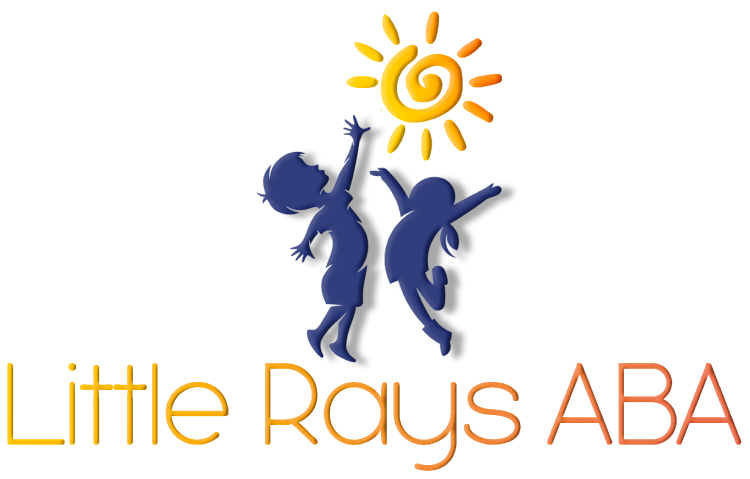
Is BCBA Certification Worth the Investment in Florida?
Key Highlights
- Rapidly Growing Field: The demand for Board Certified Behavior Analysts (BCBAs) is rising due to the increased prevalence of autism spectrum disorder and other developmental disabilities.
- Diverse Career Opportunities: BCBA certification offers flexible roles across settings like schools, hospitals, and private practices.
- Competitive Salaries: Certified behavior analysts enjoy lucrative financial rewards and career stability.
- Impactful Profession: BCBAs contribute to individual transformations, promoting skill development and improving the quality of life.
- Commitment to Learning: The certification encourages ongoing professional development and mastery of applied behavior analysis strategies.
Introduction
The area of behavior analysis is experiencing strong growth. Because of this, the BCBA certification is becoming a popular choice for people who want to work with autism spectrum disorder interventions. This certification helps professionals grow by teaching them advanced skills to handle tough behavioral issues in different groups. BCBAs have an important role in applied behavior analysis (ABA) therapies, helping to improve people’s lives in measurable ways. This blog will look at whether getting a BCBA certification is a smart choice for those thinking about a career in behavior analysis.
Understanding BCBA Certification
The BCBA certification, offered by the Behavior Analyst Certification Board (BACB), shows that someone is skilled in providing effective and ethical behavior analysis interventions. It confirms that the person has hands-on experience and strong academic training guided by applied behavior analysis principles.
Getting this certification opens up many doors in behavior management. It helps professionals address important issues, including autism spectrum disorders. Let’s explore what the BCBA certification means and the steps to earn this valuable credential.
Definition and Overview of BCBA
The board certified behavior analyst (BCBA) is important in the world of behavioral health. They use applied behavior analysis (ABA) to improve people's lives. Their certification from the Behavior Analyst Certification Board (BACB) shows their dedication to ethical practices and effective strategies for changing behavior.
To become a BCBA, there are several steps to follow. You need to get a master’s degree in areas like behavior analysis or education. After that, you must complete supervised fieldwork and pass the BACB certification exam. This exam tests your understanding of key principles in behavior analysis.
BCBAs can work in various settings such as schools, clinics, and private practices. They use ethical, evidence-based practices to help families, teachers, and individuals gain skills and improve behaviors. Now, let’s look at what it takes to succeed as a BCBA.
The Necessary Steps to Become a BCBA
Becoming a certified BCBA requires following a special certification process. This process helps build strong skills and ethical standards. First, candidates need to finish required coursework in programs like behavior analysis or psychology. This helps them improve their critical thinking skills.
Next, after completing their studies, future BCBAs begin supervised fieldwork. They need to complete between 1,500 and 2,000 hours of practical experience. This experience must be done under the guidance of certified experts. This part connects what they learned in school to real-world situations. It also helps them develop their behavior analysis skills and understand ethical practice.
Finally, candidates must take the BCBA exam. This comprehensive test measures their grasp of behavior analysis principles and intervention strategies. Doing well on this exam shows they are ready for important jobs. Once certified, they can address challenges in areas like autism therapy and more, as discussed in the next section.
The Relevance of BCBA in Autism and Behavioral Therapy
The importance of BCBA certification is very clear in autism treatments and behavioral therapy. Professionals use applied behavior analysis techniques to change lives. They create special plans to solve behavioral challenges, improve social skills, and help with growth milestones.
BCBAs play key roles in ABA therapy. They help families and schools with fact-based ways to manage autism spectrum disorder. In the next section, we will look at how they directly meet the different needs of people with developmental disabilities.
Role of BCBAs in Managing Autism Spectrum Disorders
Professionals with BCBA certification offer great support to people with autism spectrum disorder (ASD). They use intervention strategies based on applied behavior analysis (ABA) to improve communication, build social skills, and decrease challenging behaviors.
They are skilled in creating behavior intervention plans that meet the specific needs of each individual. They also help families and educators use those plans effectively. For example, they can use reinforcement techniques or communication tools to help overcome obstacles to progress.
Collaboration is important—BCBAs work together with teams of different experts to achieve success in managing ASD. Their efforts not only focus on immediate intervention but also show clear improvements in independence and quality of life. These valuable roles are important in the larger field of behavioral therapy.
BCBA's Impact on Behavioral Interventions
BCBAs change lives by tackling behavioral challenges using their knowledge of behavior analysis and management principles. They help people build good behaviors and skills while reducing bad habits.
Using tools like positive reinforcement and ABA-based methods, BCBAs set up structured settings to help progress. They carefully examine data to change strategies and make sure interventions work well. They also teach families and give them tools to help with ongoing behavior improvements.
The benefits of BCBAs go beyond just individuals—they also help communities understand and accept differences in development. This job offers good career opportunities, which we will discuss in the next section.
Analyzing the Demand for BCBA Professionals
The rise in autism spectrum disorder has created many opportunities for BCBA professionals. Using proven methods, they support the growing need for effective behavioral interventions.
The job market shows an increase in roles in areas like education, healthcare, and private practices. As the demand grows, so do the career opportunities. Next, we will look at market trends and growth chances in more detail.
Current Job Market for BCBAs in the United States
The need for Board Certified Behavior Analysts (BCBAs) is rising across the country. Experts in behavior management can find many job opportunities. This growth comes from a greater understanding of the need for autism therapy and support.
| Sector | Job Opportunities |
|---|---|
| Healthcare Settings | Early intervention, outpatient therapy |
| Schools | Supportive educational programs |
| Private Practices | Focused behavioral therapy services |
The Bureau of Labor Statistics shows a high demand for behavior analysts and expects it to keep growing for the next ten years. The BCBA position offers not just job security but also a chance to make a meaningful impact for those who care deeply. Looking ahead, we can expect even more growth in these roles.
Future Career Outlook for BCBA Roles
The future for BCBA professionals looks bright. Demand is rising, and there are many career paths to explore. As more people learn about therapies like ABA therapy, new job openings in education, healthcare, and private sectors are likely to grow.
Job surveys forecast a 19% increase in jobs in behavior analysis by 2031. This growth shows how important behavioral interventions are becoming for treating autism spectrum disorders and other developmental issues. For those eager to start, getting certified opens up a rewarding career path full of job security and opportunities to make a difference.
Aspiring BCBAs can gain a lot from looking into specialty roles or leadership positions in research, development, or consultancy. This can lead to n*ice long-term career growth** and allow them to contribute more to society. With these options in mind, let's talk about the financial investment needed for BCBA certification next.
Costs and Benefits of Pursuing BCBA Certification
Pursuing BCBA certification takes a lot of time and money. You usually need a master's degree, required coursework, and a lot of practical experience. This effort can lead to rewarding career opportunities, higher salaries, and a chance to make a meaningful impact on the lives of individuals with autism spectrum disorder and other developmental disabilities. There is a growing demand for certified behavior analysts. Because of this, the benefits often outweigh the costs. This path can lead to good professional growth and job satisfaction.
Detailed Breakdown of Certification Costs
Getting BCBA certification requires some money. First, you will need a master’s degree in behavior analysis or a similar subject. This degree can cost between $30,000 and $70,000. Then, you have to think about other expenses. These include required coursework, fees for the exam, and ongoing professional development. All of this can add up to several thousand dollars. You will also need to consider practical experience, which you gain through supervised hours. If you get this experience at private practices, there may be extra costs. Knowing about these expenses is important for budgeting and fitting your finances with your career goals in the field of behavior analysis.
Return on Investment: Financial and Professional Gains
Getting a behavior analyst certification can bring many financial rewards. Board Certified Behavior Analysts usually earn higher salaries than others in similar jobs. This is because there is an increasing need for ABA therapy and behavior analysis services. By choosing to get certified, people open the door to many career opportunities in different settings. These can include schools and private practices. Besides the money, professional development helps create a rewarding career. It allows for continuous personal and professional growth and also helps the lives of individuals with developmental disabilities.
Essential Skills for Success as a BCBA
A successful board-certified behavior analyst (BCBA) needs to have strong people skills and good communication. This helps them connect with clients and their families. They must also be good at analyzing information and solving problems. These skills are important for creating behavior intervention plans that tackle specific behavioral challenges. Knowing the principles of applied behavior analysis helps BCBAs use research methods to apply best practices in many different settings. These skills not only support professional growth, but they also help improve the quality of life for people with developmental disabilities.
Interpersonal and Communication Skills
Effective communication and interpersonal skills are essential for success in behavior analysis. When board certified behavior analysts (BCBAs) master these skills, they can explain difficult ideas clearly to families, teachers, and clients. This helps build strong teamwork. Talking about behavior intervention plans and treatment strategies needs clear speaking and understanding. Both are important to address the challenges faced by people on the autism spectrum. These skills lead to positive results in many different settings.
Critical Analysis and Problem-Solving Abilities
Critical analysis and problem-solving skills are very important for BCBAs dealing with complex behavioral challenges. With a good understanding of behavior analysis principles, these professionals can effectively assess individual needs. This helps them create targeted intervention strategies. By mastering critical thinking, future BCBAs can better analyze data-driven results. This approach allows for informed decision-making in real time. These skills not only improve the quality of behavior management but also lead to significant changes in the lives of individuals on the autism spectrum or those with developmental disabilities. This contributes to a rewarding career.
Real-Life Impacts of BCBA Certification
The process of getting BCBA certification offers many real benefits for people and the communities they help. Certified behavior analysts often feel more satisfied with their jobs. They can use proven methods to tackle behavioral challenges related to autism spectrum disorder and developmental disabilities. Their skills can also greatly improve the quality of life for clients. They create customized behavior intervention plans that help build social skills and promote positive results in various settings.
Case Studies: Success Stories of BCBAs
Board certified behavior analysts have made great changes in many lives. One strong example is when a BCBA created a personalized plan for a child with autism spectrum disorder. This plan helped the child improve their social skills and daily tasks. Another story shows a BCBA in a school setting. This person used best practices to improve behavior management and helped students with developmental disabilities do better in school. These stories show how BCBAs can have a positive impact on individuals and their families.
Testimonials from Families and Educators
Families and educators often say that BCBA certification has greatly changed how they deal with autism spectrum disorder. Many people share their stories about how this has helped improve the quality of life for children. They have seen benefits from using good behavior management strategies and personalized intervention plans. Parents show their thanks for certified behavior analysts, who provide support that builds social skills and lowers behavioral challenges. Educators also value working with BCBA professionals. This teamwork helps them use best practices, which makes the learning environment better for all students.
Is BCBA the Right Path for You?
To find out if BCBA certification is the right choice for you, take some time to think about your interest in behavior analysis and your desire to help people. Look at your skills, personal values, and your career goals. This will help you make a smart decision.
Self-Assessment Guidelines for Potential BCBAs
To decide if you are fit for BCBA certification, it's important to think about your motivations and strengths. First, reflect on your interest in applied behavior analysis, especially with people who have autism spectrum disorder and developmental disabilities. Next, evaluate how adaptable you are and whether you are eager to keep learning through ongoing professional development. These qualities are key in dealing with behavior management challenges. Lastly, look at your communication skills. Good communication can help you work well with families and teachers, which will improve your ability to use evidence-based intervention strategies.
Consulting with Experienced BCBAs
Talking with experienced BCBAs can give you great knowledge if you are thinking about getting certified. Discussing with them often shows the real side of applied behavior analysis. You can discover job chances and what the certification process looks like. Their advice can also help you see different career paths and important skills needed for success in various places, like private practices and schools. Plus, these skilled behavior analysts can tell you about the best practices and ethical standards that improve your growth and can help you have a satisfying career in behavior analysis.
Conclusion
Getting BCBA certification takes a lot of time and resources, but its benefits are worth it. There are many career options in behavior analysis. This gives people a chance for real professional growth and lets them help others, especially those on the autism spectrum. Many companies now want certified behavior analysts, which shows how valuable this certification is. For people ready to focus on ongoing professional development, BCBA certification could be a very rewarding choice in today’s job market.
Frequently Asked Questions
What is the Time Commitment for BCBA Certification?
The time needed for BCBA certification usually takes between 1 to 3 years. This depends on your past education and experience. The process includes classes, hours of supervised experience, and studying for the certification exam. Good planning is important to help you manage these needs alongside your personal commitments.
SOURCES:
https://online.arizona.edu/news/how-become-bcba
https://drexel.edu/soe/resources/career-path/how-to-behavior-analyst/
https://www.umassglobal.edu/blog-news/what-is-a-behavior-analyst-and-how-do-you-become-one
https://www.bacb.com/wp-content/uploads/2025/02/Lightcast2025_250204-a.pdf
https://blog.peabody.vanderbilt.edu/the-peabody-blog/advance-your-career-three-benefits-of-aba-certification
https://bachelors-completion.northeastern.edu/knowledge-hub/applied-behavioral-analysis-career/
Related Posts





